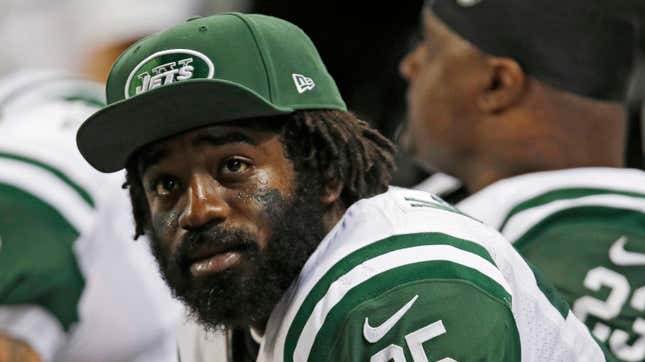
Former NFL running back Joe McKnight was killed in a 2016 road rage incident in New Orleans, and the Supreme Court ruled that the person who fatally shot him cannot be retried after his previous conviction was overturned, according to the Associated Press.
Ronald Gesser, the man who killed McKnight, was initially charged with second-degree murder for the fatal shooting of the former New York Jets player. During his trial, Gesser claimed self-defense and pleaded not guilty to the charge. However, the jury later convicted him of a lesser charge of manslaughter, which was eventually overturned because the ruling came from a non-unanimous jury, which was ruled unconstitutional by the U.S. Supreme Court.
Prosecutors want another chance to take Gasser to trial for murder and the Jefferson Parish District Attorney’s Office has argued that the non-unanimous decision is not the same as an acquittal.
From the Associated Press:
But the seven-member Supreme Court agreed with lower court rulings that trying Gasser again on the murder charge would violate his constitutional protection against double jeopardy.
Writing for the court, Justice Jay McCallum said state and federal double jeopardy protection “bars the reinstatement and retrial of a defendant on a higher charge when he has been lawfully convicted of a lesser included offense, even though the conviction is later vacated.”
As a football player, McKnight was considered by many to be the best high school player in the country coming out in 2007. He went on to play for three years at the University of Southern California where he ran for a total of 2,213 yards and scored 15 touchdowns.
He was drafted by the New York Jets in the fourth round of the 2010 NFL Draft where he played for three years up until 2012. After taking the 2013 season off, Mcknight returned to football in 2014 playing for the Kansas City Chiefs.
McKnight then played in the Canadian Football league up until his death.
More from the Associated Press:
Police said McKnight’s death followed a 5-mile (8-kilometer) rolling confrontation that began with dangerously aggressive driving on a New Orleans bridge and ended with McKnight being shot as he stood outside Gasser’s car at a suburban intersection.
Witnesses at Gasser’s 2018 trial said McKnight had been weaving in and out of traffic at high speed before the shooting. But prosecutors argued that Gasser escalated the conflict, following McKnight down an exit that he would not ordinarily have taken.

